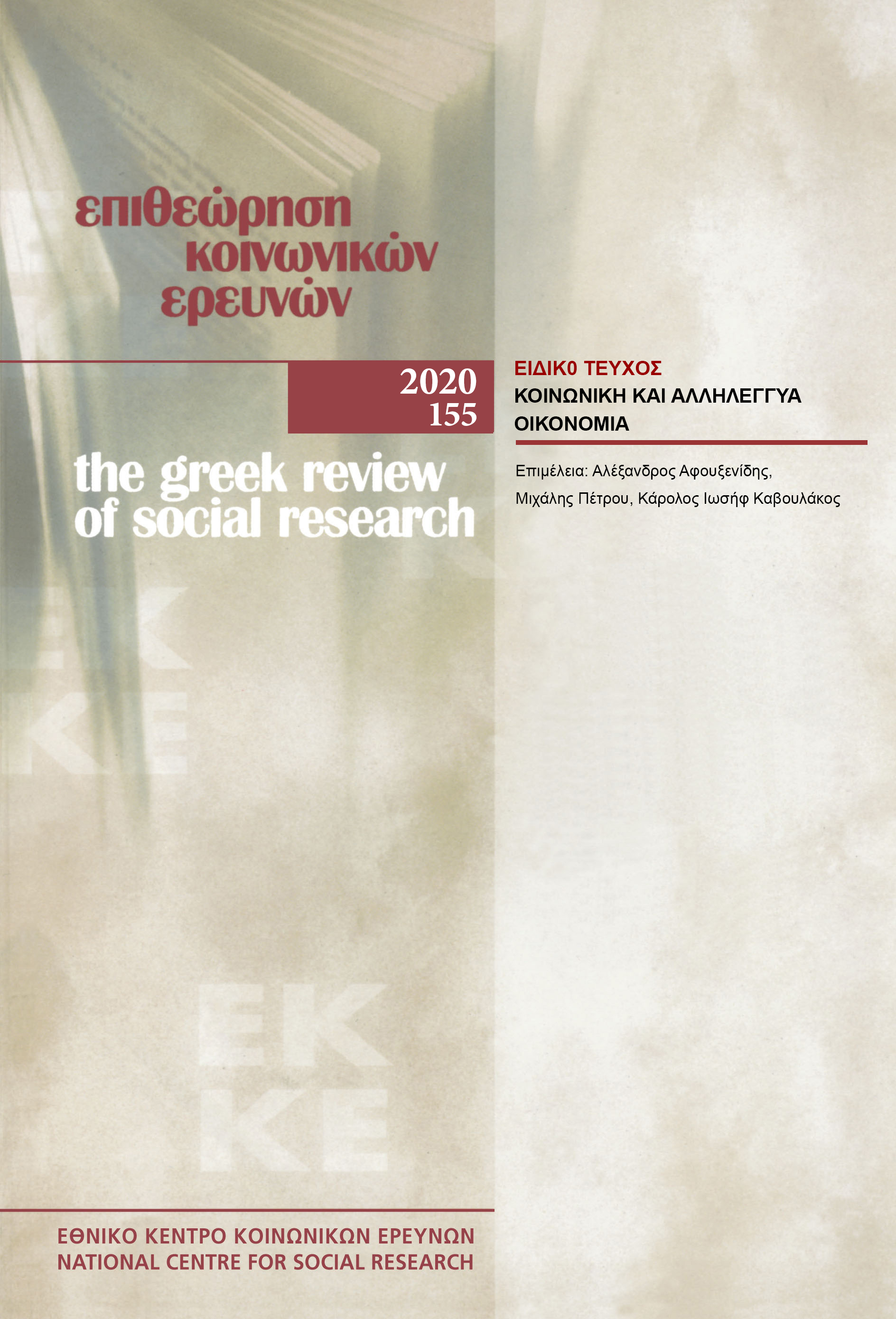State and Social Solidarity Economy: Friends or foes? The potential for co-construction of public policies for Social Solidarity Economy in Greece

Abstract
This paper focuses on the relations between state and Social Solidarity Economy (SSE) practices regarding the case of Law 4430/2016 on Social and Solidarity Economy actors in Greece. This legal framework was introduced at a time when a new wave of cooperativism had already emerged in crisis-ridden Greece and a party of the radical left with strong affiliations with social movements was elected to power. In this context, it is interesting to explore the potential for a new trajectory in state and SSE interactions through the analytical perspective of the co-construction of public policies. The results presented in this paper are based on a research project funded by the Heinrich Boell Foundation Thessaloniki Office. The research design is based on mixed methods: a content analysis of the contributions implemented by relevant stakeholders during informal and formal consultation processes and the analysis of data from semi-structured interviews with selected networks and support organizations for SSE in Greece.
Article Details
- How to Cite
-
Adam, S., & Kavoulakos, K. I. (2020). State and Social Solidarity Economy: Friends or foes? The potential for co-construction of public policies for Social Solidarity Economy in Greece. The Greek Review of Social Research, 155, 121–150. https://doi.org/10.12681/grsr.24829
- Section
- Articles

This work is licensed under a Creative Commons Attribution-NonCommercial 4.0 International License.
Authors who publish with this journal agree to the following terms:
- Authors retain copyright and grant the journal right of first publication with the work simultaneously licensed under a Creative Commons Attribution Non-Commercial License that allows others to share the work with an acknowledgement of the work's authorship and initial publication in this journal.
- Authors are able to enter into separate, additional contractual arrangements for the non-exclusive distribution of the journal's published version of the work (e.g. post it to an institutional repository or publish it in a book), with an acknowledgement of its initial publication in this journal.
- Authors are permitted and encouraged to post their work online (preferably in institutional repositories or on their website) prior to and during the submission process, as it can lead to productive exchanges, as well as earlier and greater citation of published work (See The Effect of Open Access).



